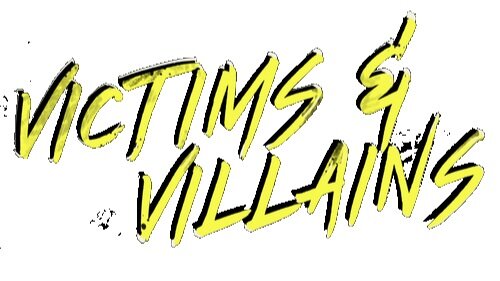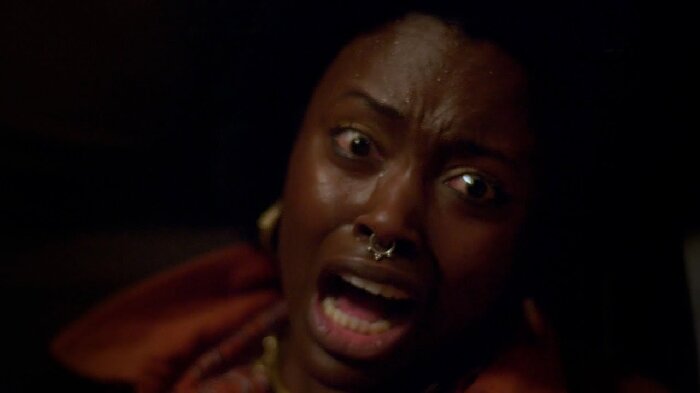I’m consistently finding myself in awe of how much the medium of film changes and challenges me. I will be honest: a couple of months ago I really wasn’t too big on short films. If you know me, personally, you know that I have sworn off trailers as of last year. They give too much away. It’s one of the main reasons our YouTube page now has almost nothing but podcast episodes. In some ways, short films can equally be just like trailers for me. They tease something I’d like to see on a bigger scale. I know how hard filmmakers work on those projects and how complex it must be to tell a story in such a short format, but I want to see more.
For years, I just wasn’t the audience for it. Even when we would cover film festivals, prior to this year, I would always veer away from short films. It was that mindset of being teased. Recently I had the chance to cover Grindsploitation Film Festival, where they had more short films than features. You can check out my list of the top 10 here. In that festival, I noticed how a couple shorts felt more attuned to the feature film format. Shorts like “Pelican Milkshake” and “Possessions” both teased me a bit more than I would care to admit. If a short film can make me care about your characters in under ten minutes than you’ve done your job.
Jill Gevargizian is a perfect example of this. She took her story “The Stylist” which began as a short film and brought it to a feature film. The film is not only one of the best movies of the year. Short films come in all shapes and sizes. They can stand on their own or they can find homes in an anthology a la Trick R’ Treat or V/H/S. Australia now welcomes a new anthology to Shudder called Deadhouse Dark. Deadhouse is home to six short films that are loosely connected together. I will address that connection in a bit. The series opens with “Dashcam”, which depicts two sisters stumbling upon a car crash via a dashcam. “No Pain, No Gain” follows with an olympian athlete seeking a new coach to train. “The Staircase” welcomes a want-to-be-famous vlogger as he navigates his way through a haunted house.
The series continues with “A Tangled Web We Weave” - an eldery man, with a rat problem, goes onto a dating app in order to find victims for his serial killer alter ego. “Mystery Box” shows a woman grieving the death of her mother. The last entry keeps with the death motif in “My Empire of Dirt”, as a dying woman communicates with the dead. “Mystery Box” is the very loose connective tissue for these stories. When I say loose, I mean extraordinarily loose. There is a scene with the grieving woman navigating a room full of pictures that feature characters from the other stories. It’s a very shoddy attempt at cohesion. It almost would have been better to just let these stories be something like The Twilight Zone or Tales from the Crypt. They don’t have to be connected; it just feels extremely forced when they are.
With the exception of “Pain”, a lot of these other segments are just boring, predictable, and dragged out. Perhaps the worst offender of this would be “Staircase”. By this point in horror, it feels like a mainstay: someone wants to be famous, so they go into a haunted house to guarantee their 15 minutes of fame. Give me a break - this is such a tiresome way of storytelling in the genre, The Blair Witch Project and Paranormal Activity being the exceptions. “Staircase” is a paint-by-number predictable montage of boring and uninteresting characters - it’s not the only short like this either.
“Tangled Web” has the most potential out of every one of these segments. If there was one short that could graduate to feature length, it would be this one. While yes, it does recycle stuff that has come before it thematically, it never rises to its potential. A man with a trophy room dedicated to his victims and his date stumbles upon it. The ending is as unsatisfying as the other 10 minutes of the short are. So much of these segments are like that. They never give the audience anything that drags them to the edge of their seat. There are some exceptions to this notion, however.
The last few moments of “My Empire of Dirt”, while predictable, do allow the series to end on a semi-high note, as does “Dashcam”. Dashcam is a segment that definitely stands out. The film is found footage but also gives a satisfying twist that you didn’t see coming. It’s among the rumble of satisfaction that Deadhouse presents. “Pain” is definitely the star here. It is the one the audience will spend the most time with in a few minutes. It’s a short that doesn’t rely on ghosts, killers, or anything typically associated with horror. It is the one that demonstrates sometimes the scariest things are those that come from everyday things.
Overall, Deadhouse Dark isn’t as deadly nor as dark as it promises. The anthology is a recycling plant of tiresome horror tropes and past trends that died out long ago. Segments like “No Pain, No Gain” and “Dashcam” give the film some life. Even then it’s still hanging on merely by life support. Several of these shorts demonstrate potential but waste that potential by sticking to familiar horror tropes. Call the doctor because Deadhouse Dark isn’t gonna make that big of an impression and might even be dead on arrival.
RORSCHACH RATING:
Mental Health Moment: “No Pain, No Gain” stands out tremendously of these six segments - not just for its quality, but also for how it resonates with us specifically because we are a mission focused non-profit and publication. The segment focuses on a young athlete who pursues a new coach. The only catch with this coach is that he is talking her into self-harm and even attempts to get her to commit suicide. Trigger warning, the series does actually show her cutting herself. Everyone around her is trying to warn her about her lifestyle choices but she just won’t listen.
Depression is a chameleon. It knows how to morph and how to keep you isolated. That’s what viewers see with this young athlete the entire time. She has shut herself off from everyone. She has been caught up in the promise of glory. Depression likes to grip down deep with its claws and promise you things that never can manifest to the degree of what they promise. It’s not until she comes face to face with a potential watery grave that she snaps out of it. How many of you reading this right now are feeling the impact of depression? Please make sure you are surrounding yourself with positive influences and if you need to consult our resources, please do so. Your life has more value than you may realize.
If you or someone you know is reading this right now and struggling with suicide, depression, addiction, or self-harm - please reach out. Comment, message, or tweet at us. Go to victimsandvillains.net/hope for more resources. Call the suicide lifeline at 1-800-273-8255. Text "HELP" to 741-741. There is hope & you DO have so much value and worth!
Victims and Villains is written (and produced) by Josh "Captain Nostalgia" Burkey and others, and edited by Cam Smith. Music by Mallory Johnson and others. Deadhouse Dark is property of Shudder and Screen Australia. We do not own nor claim any rights.
You can now support us on Patreon. Help us get mental health resources into schools and get exclusive content at the same time. Click here (http://bit.ly/vavpatreon) to join today!



